
views
Preventing Drama by Being a Good Friend

Spend quality time with your best friend and don’t ditch them for other people. A surefire way to start drama with your best friend is if you start making them feel like they aren’t a priority in your life anymore. While it’s natural to make new friends over time, remember that your best friend deserves your time and attention, too. Think about how you would feel if your best friend suddenly started hanging out with a new friend and stopped talking to you or seeing you as often. You’d be pretty hurt. If you will be spending less time together because your life became busier, talk to your friend about the changes and tell them that they still matter to you and that you want to spend time together when you can. Try setting a weekly friend date so you can still catch up and have quality time together. Sometimes long-distance friendships can get strained because you can’t see each other in person regularly. If your best friend lives far away, schedule regular phone calls or video chats so you can stay connected.
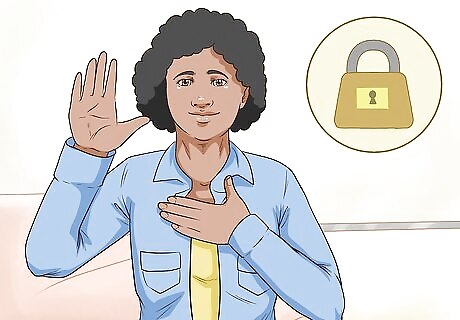
Keep your friend’s secrets and prove that you’re a trustworthy friend. Just like you expect your best friend to not share things you told them in confidence, you also need to be a good secret keeper. Even if your friend didn’t explicitly say, “don’t share this with anyone,” consider whether or not they would be hurt, angry, or embarrassed if that information got out. If your friend is hurting themselves or others, tell a trusted grownup right away. If they’re experiencing abuse or bullying, tell someone or encourage your friend to talk with someone right away. These situations are very serious and shouldn’t be kept secret.
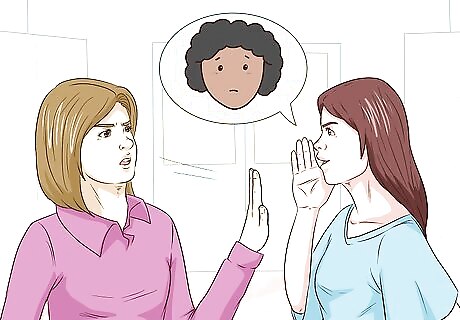
Avoid listening to or participating in gossip about your friend. If someone starts talking to you about your friend in a negative way or is asking questions that are none of their business, either walk away from the situation or tell them directly, “I don’t feel comfortable talking about my friend.” If someone hears you talking about your friend in a negative way, it’s bound to get back to them and cause drama. If you have a really hard time not gossiping, try writing down your thoughts in a journal. That might help you work out why you feel the need to talk about your friend in a way that won’t hurt anyone. Just make sure to keep the journal in a safe place at home so no one finds it and reads it!
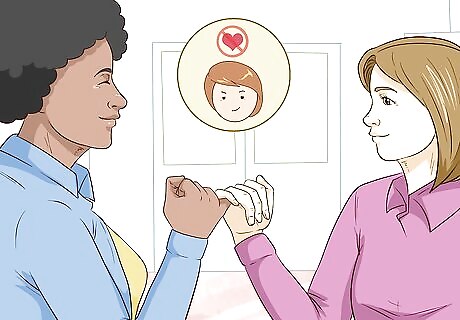
Commit to not having drama over boys or girls either of you may like. This is probably one of the bigger sources of drama in friendships, and it has the potential to make things really rocky between you and your best friend. Agree to not let a romantic interest come between the two of you. Remember, a boyfriend or girlfriend might just be around for a few months, but your best friend could be around for your entire life. For example, if you and your friend both like the same person, you could make an agreement that neither of you will date them unless the other person agrees it’s okay. Be open and honest with your friend (and ask them to do the same) so that you can talk about the situation. If you start having romantic feelings for your friend or vice versa, this could also lead to a strained friendship. You could wait it out to see if your feelings pass, or you may want to talk out your feelings with your friend.
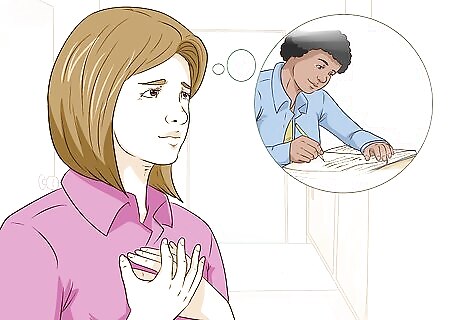
Stay calm and don’t jump to conclusions when you feel hurt or left out. If you hear a rumor that your friend said something mean about you or didn’t invite you to something, try to take a few deep breaths and consider that you might not know the whole story. Before shooting off a snarky text to your friend, pause and calm down so you can address the situation rationally. If your friend is suddenly spending less time with you, find out why instead of assuming something bad. Maybe they’re spending more time studying because they’re struggling with a class, or maybe they have more responsibilities at home than they did before. If you react to a situation and say something mean to your friend or complain to other people about them, you are potentially just feeding into unnecessary drama.

Deal with conflict directly instead of venting to someone else. Don’t create drama by not dealing with your feelings upfront. If you just push down your feelings, eventually they’ll accumulate and be much harder to deal with. Avoid getting other friends involved or asking them to take sides. You could potentially make them feel really uncomfortable, plus that friend might share what you told. If you do need to talk to someone about the situation, try talking to a family member or a friend who doesn’t go to your school or know your friends. Recognize that you can bring up how your friend's behavior makes you feel but you may not be able to change who they are. Definitely don’t post passive aggressive things on social media.Try Saying This: Hey Katie, I wanted to talk to you about something. Could we meet up after school? or I’ve been feeling upset about something that happened earlier this week. I don’t want it to affect our friendship, so could we talk about it?
Preserving Your Friendship After Drama

Think about why you’re feeling upset before you talk to your friend. Whether you or your friend started the drama, it’s a good idea to figure out what you’re feeling and why you’re feeling that way before you have a conversation. This will help you communicate more clearly and express why what happened bothered you (or why you did what you did). For example, let’s say your friend said something rude about your outfit to another friend. Your first instinct might be to lash out and say that they’re jealous, but if you pause and think about it, you might be feeling hurt that your friend criticized you or even embarrassed by their comments.

Wait to talk to your friend until you both are calm. Friends get into arguments—that’s just what happens in relationships! If you’re both angry about something, take a few minutes (or a few days) to calm down before you try to talk again. Talking when you’re angry will just cause another fight; if you’re both calm, you can actually communicate. It’s totally okay to say something like, “I’m feeling really angry right now. I want to talk, but I need some time to calm down. Can I call you when I’m ready to talk?” Avoid giving your friend the silent treatment. It’s kinder and more polite to simply tell them you need a little space. The silent treatment will just cause more tension and drama.

Communicate in person so there are no more misunderstandings. Texting can really skew what you’re trying to say. Something meant to be lighthearted could be taken seriously, or your friend might think you’re being insincere when you’re really not. Set a time to talk after school or on the weekend so you can focus on the conversation. If you really don’t want to talk in person, you could always try writing a letter. That way, you can make revisions and be careful to really communicate what you want to say.

Listen to your friend instead of just waiting to talk. Especially if you hurt your friend by starting drama, let them say what they need to and really listen to them with an open mind. Don’t spend the time thinking up ways to excuse or defend yourself. There’s a chance you will need to apologize, and this opportunity could really help you understand your friend better and deepen your friendship. When you do speak, try to use “I” language rather than “you” language. For example, saying “I felt like you were ignoring me” will sound better than “You were ignoring me” and it’ll be less likely to make your friend feel defensive. When it’s your turn to speak, you could echo back what your friend said to show you really heard them. Say something like, “So you’re saying that when I complained about you to Mark, it made you feel like you couldn’t be yourself around me.”Tip: Don’t interrupt your friend while they’re speaking. Avoid looking at your phone, and try to nod your head every once in a while so they know you’re listening.

Resolve the conflict, apologize if needed, and talk about reestablishing trust. Depending on the conflict between you and your best friend, you may need to establish some new boundaries or compromise on something, and there’s a good chance one of you or both of you will need to apologize. Also, it’s okay if your feelings have changed or if you feel hurt by your friend’s behavior still; it can take a while for those types of situations to get less painful. For example, maybe your friend has a new boyfriend and is spending more time with him than with you. You could compromise that one night every weekend is reserved for the two of you to hang out but that the other nights you’ll each do your own thing. If you do need to apologize, be sincere and take responsibility for your part in the drama. Try saying something like, “I’m really sorry I hurt you.” Make it short and simple and avoid making excuses for your behavior.
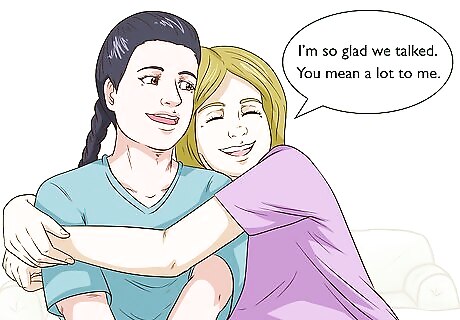
Reaffirm how much you mean to each other. Friendships have ups and downs, but they don’t have to end just because there was some drama. Once the situation has been resolved, tell your friend how happy you are that you’re in each other’s lives. Make an effort to be more appreciative of them in the future. For example, you could say something like, “I’m so glad we talked. You mean a lot to me and I can’t imagine what my life would be like if we weren’t friends.” Working through drama and conflict is actually one way that friendships get stronger. You can prove that you’re a good friend and hopefully your friend will do the same for you.
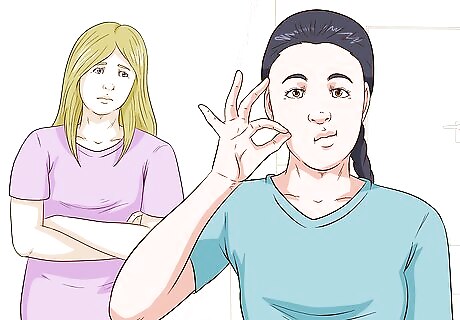
Consider putting up boundaries with your friend if you can’t resolve the issue. Reoccurring drama that doesn’t change even after you’ve talked to your friend about it might warrant some changes in your friendship. For example, if your friend has the bad habit of telling your secrets to another friend, you may want to reconsider what you share with them. Setting boundaries doesn’t mean that you won’t still be great friends with this person; in fact, it can often help you to feel less resentful of them so you can focus on the other parts of your friendship that are great!




















Comments
0 comment